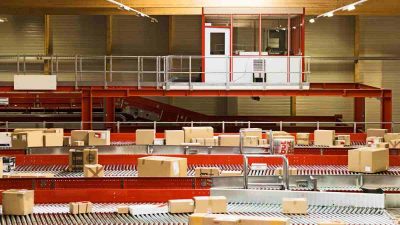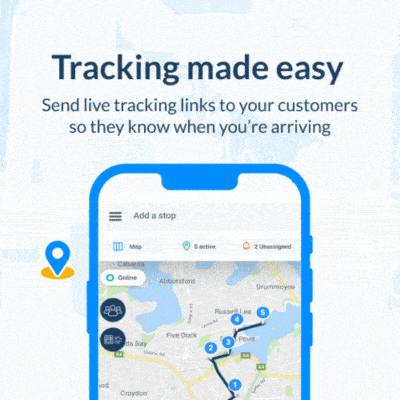Imagine this: An automated sorting conveyor system, diesel-free operation, and solar-powered delivery vans. Parcel delivery company DPD has opened a new $49 million eco-regional sortation center in East London. The half-kilometer-long conveyor system automatically sorts all intra-London parcels for next-day delivery on-site. This minimizes the carbon footprint of trucks transporting the parcels to the Midlands and back for sorting.
The new building will ensure DPD delivers up to 80,000 parcels in a greener way into London daily, with its pledge to be kinder to the environment.
The new facility will create more than 600 work opportunities when it’s fully operational next year. One of the first of its kind, the site will function as a hybrid eco-sortation and distribution facility. The site will also have solar panels in the parking area, where 500 electric vans are charging.
The trucks that will be used are filled up with renewable biofuel. When fully operational, the solar panels could generate up to a million kilowatts per year to help power the building.
Investing in the future
“This investment represents another huge step towards our net zero goals. [It] demonstrates the new gold standard for a green parcel delivery operation in London or any city. This represents a major milestone in our green journey,” says Elaine Kerr, DPD UK CEO.
“But this is far from the end. We are constantly looking for new and smarter solutions. [Earlier] this year, we rolled out autonomous robot deliveries. We will continue investing in green innovation to accelerate our decarbonization pathway.”
IQAir says air pollution has cost approximately $9 billion in London this year. Nearly $5 billion is spent annually on health treatment due to pollution in London.
The government says the most pollution in London is caused by road transport and commercial and domestic heating systems.
London is requesting greener deliveries
Over the years, customers have demanded to order from businesses with the same eco-mindset, aiming to protect the environment. Customers are more conscious of the need to find alternative modes of transport that are less harmful to the environment. Consumers have shifted their behavior and are turning away from lower costs in the name of ethics.
A recent IBM and National Retail Federation study found that 72% of customers are willing to pay a premium price for sustainable and environmentally responsible brands.
Another study by Futerra found that 88% of customers want brands to help them be more conscious and environmentally friendly.
Share this article
About the author
Mia is a multi-award-winning journalist. She has more than 14 years of experience in mainstream media. She's covered many historic moments that happened in Africa and internationally. She has a strong focus on human interest stories, to bring her readers and viewers closer to the topics at hand.












